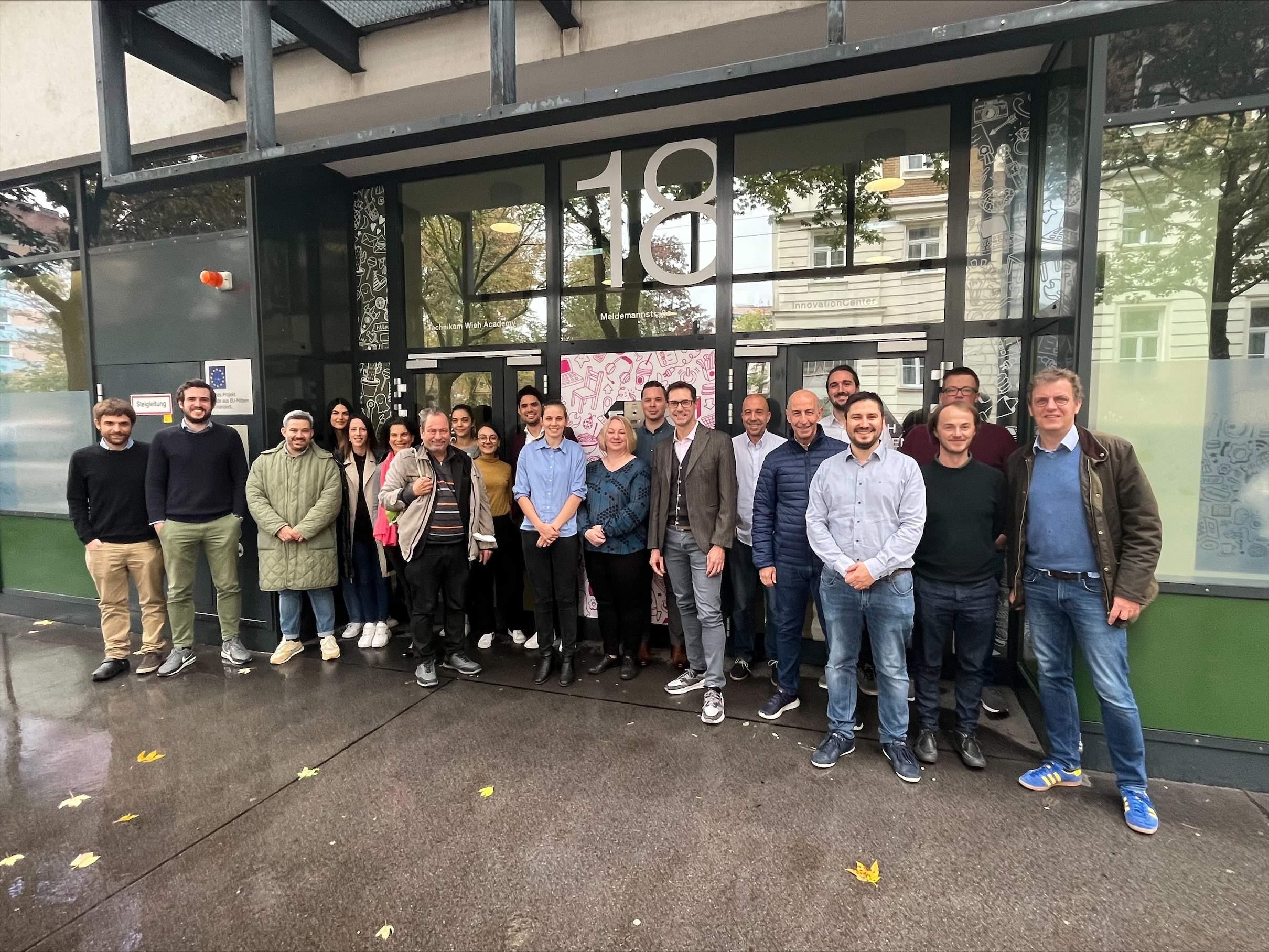Affordable Housing for Climate-Friendly Neighborhoods: UAS Technikum Wien Leads International Research Project

28 October, 2022
The ProLight project, co-funded by the EU, is investigating in neighborhoods in six countries how to increase the share of renewable energy in the housing sector, reduce energy consumption and, in the process, include less affluent segments of the population. Sixteen international partner institutions are involved in the project, which is headed by Momir Tabakovic from the Climate Fit Building Technologies Competence Center.
Cities make up less than two percent of the earth’s surface, but they are among the biggest polluters. Urban areas are responsible for more than 60 percent of greenhouse gas emissions, and their building stock plays a crucial role.
According to the European Commission, buildings account for 40 percent of energy consumption in the EU and 36 percent of greenhouse gas emissions. In order to achieve the EU’s climate targets by 2030, a rethink is needed in the design, construction and refurbishment of buildings. The European Green Deal therefore identifies so-called plus-energy neighborhoods and near-energy-neutral buildings as a key priority. However, the investment required for such a transition is high, and the question is how to engage less affluent segments of the population that rely on affordable housing in this change process.
Six Neighborhoods in Focus
The ProLight project, which is co-funded by the EU, is investigating how innovative renovation technologies, new sustainable business models and the participation of local citizens can be brought together in six urban neighborhoods in Austria, Finland, Italy, Greece, Spain and Portugal. “Our goal is to empower the citizens* of our demonstration districts to become active and responsible partners* in the necessary transformation towards lower CO2 emissions,” says Momir Tabakovic from UASTW’s Climate Fit Building Technologies Competence Center, coordinator of the ProLight project. The individual districts are taking different approaches and will work together with district managers, develop digital apps or carry out other participatory activities to strengthen the competence of their residents in energy issues. An exchange of experiences between the different locations is planned, so that ultimately other districts and cities can learn and benefit from the results of the project.
Economic, Social, Ecological and Cultural Aspects
The aim of ProLight is to investigate how to accelerate the implementation of these measures while ensuring that all relevant socioeconomic, environmental and cultural aspects are taken into account. Through this innovative approach, project participants aim to increase the share of renewable energy in the residential sector and reduce per capita energy consumption, with annual savings of up to 190 GWh expected. “Our long-term goal is to enable refurbishment of more than 1,100 social housing units and to spread our approach,” said project manager Tabakovic at the project’s launch event in Vienna earlier this month.
ProLight started in October 2022 and will run for 48 months. 16 partners from ten European countries are participating in this joint project. The European Union’s European Health and Digital Executive Agency is co-funding the project with up to €2.67 million. ProLight’s progress can be followed on Twitter and LinkedIn, and more detailed information will be available on the project website from 2023.


